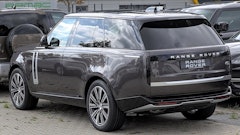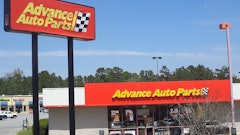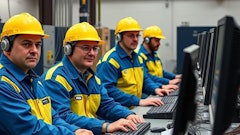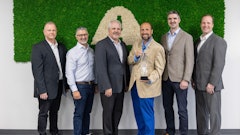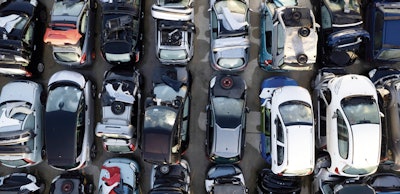
By Barett Poley
Peterborough, Ontario — January 1, 2017 — In France, the pressures of being a smaller country that is part of a larger union weigh heavily on the collision repair industry. Consolidation within the country has led to tougher times than usual for collision repair shops.
The International Bodyshop Industry Symposium (IBIS) draws together key influencers and thought leaders from across the globe to discuss the trends and factors impacting the collision repair industry both at home and abroad. Collision Repair magazine is the exclusive Canadian Media Partner for IBIS. In this report we present information compiled by IBIS on the current state of the collision repair industry in France. The data in this report is provided courtesy of Le Journal d’Automobile.
As it stands, France is seeing a temporary downturn in the collision repair industry. A small number of shops take on most of the jobs and there has been an overall reduced rate of claims. Alexander Guillet of Le Journal d’Automobile says “ … there’s a reduction in claims rates, combined with a difficult economic situation. We have also seen consolidation of the sector both with insurance companies and bodyshops.”
The population of France is 66 million and the country boasts 40 million fully licensed drivers and over 38 million vehicles on the road, but despite this there are fewer and fewer collision repair centres. The country is host to around 7,500 collision repair businesses, with 70 percent of business going to just 3,500 of those shops, according to Guillet.
Unlike Italy, where carmakers are just beginning to form networks to influence the collision repair industry, in France it is standard practice, and there are many outside forces exerting influence on the market. This has essentially driven out the concept of independent shops as a whole in the country, as everybody seeks standardization and consolidation. Guillet says “We have a high involvement of carmakers’ networks on the market, in order to compete with other [non-manufacturer] networks – there are now nearly no significant, true independents in the market.”
In addition to the pressures from the OEMs, insurance companies are also seeking to control the average price of repairs. In France there are 77 motor insurance companies, but a small number takes the majority of business. In fact, in France, the top three companies, MACIF, AXA, and Groupama get the vast majority of business, which gives them the means to exercise some control over the collision repair industry. According to Guillet, “Between 3,500 and 4,000 bodyshops absorb approx 70% of the business which gives great importance to these ‘heavy’ accounts for the players. Insurance companies are paying close attention to the balance between carmakers’ networks and [non-carmakers’] ones, in order to control the average repair cost.”
Though the market is in a strange place, France is taking it in stride. In fact, when it comes to new technologies, the country is very much ahead of the curve, embracing pre- and post-repair scans, perhaps as an extension of the mass consolidation in the country. The new technologies have been adapted quite well by collision repair shops, and the collision repair sector is considered incredibly modern in that sense. Guillet explains “… nowadays [we are making use of] new materials, electronics etc. coming to market – the new architecture of cars designed to avoid, or limit, the severity of collisions.” He says that this is a “crucial point.”
With regard to computerized systems, he says they have been very widely implemented. “France is a mature market from this point of view, with experts having nearly fulfilled their professionalization.” Hovever, France’s industry has a hard time finding qualified workers, just as in Canada.
“It is not a desirable profession. Sometimes it is difficult to appoint personnel. Training also represents a key point for the workshops,” explains Guillet.







